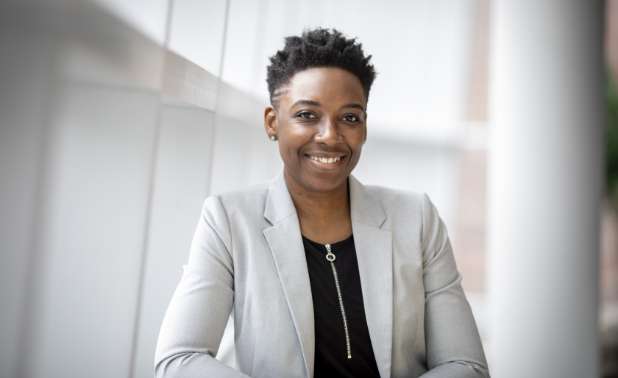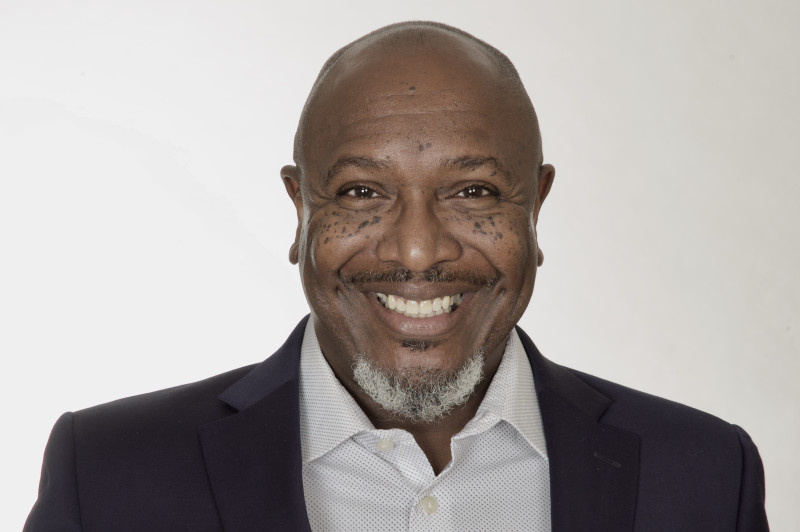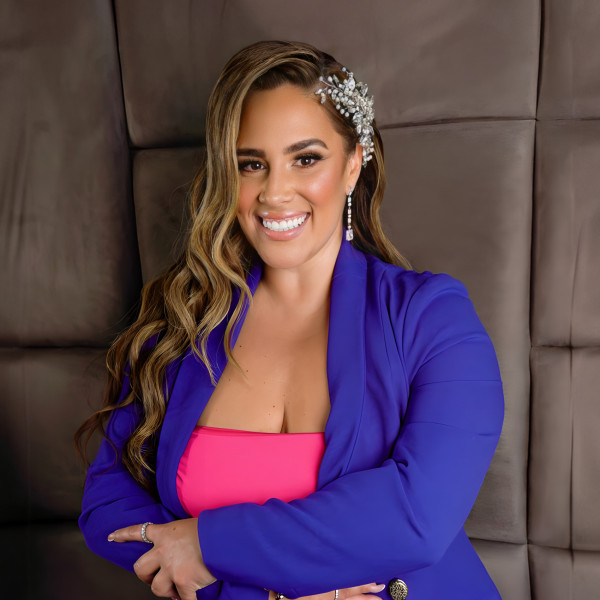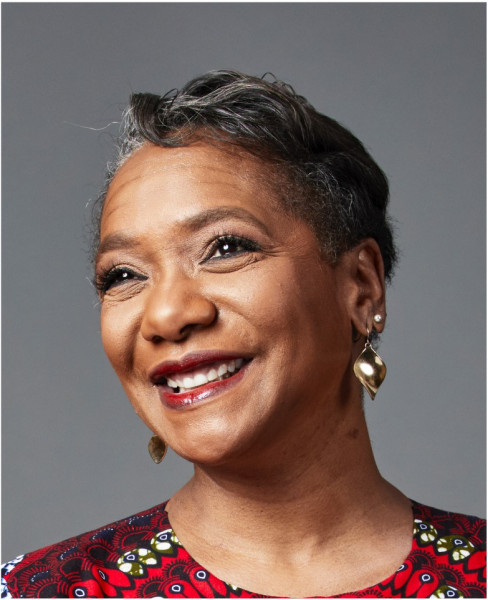Kamela Forbes:
Hello and happy holidays. Welcome back to the final episode this season of But First, People, a podcast that dives into the incredible diversity of the world of work. I am your host, Kamela Forbes, and I'm absolutely delighted to introduce our distinguished guest, Mark E. Fowler, a true trailblazer in the realm of interfaith dialogue and inclusivity.
Mark serves as the CEO of Tanenbaum, a secular and non-sectarian nonprofit organization dedicated to transforming individuals and institutions, fostering respect for religious differences, and combating hate. Mark is also a revered keynote speaker and facilitator addressing critical issues of equality spanning race, gender, sexual orientation, and religion. His influence extends globally from addressing local audiences like the YMCA of Greater New York to international platforms like the United Nations.
In today's episode, we delve into the vital topic of religious diversity in the workplace, exploring the intricate intersections between faith, non-faith, and other diverse identities. Mark shares his expertise on how companies can enhance employee retention through inclusive faith-based programs and initiatives and sheds light on implementing policies and practices that empower employees to bring their authentic selves to the workplace, thereby fostering an environment of genuine acceptance and belonging.
Mark, it's an absolute honor to have you here. Welcome to the show.
Kamela Forbes:
Well, we are here, and I know you're a little nervous already because I told you that we always start out But First, People podcasts with a song.
Mark E. Fowler:
Yes, very nervous.
Kamela Forbes:
I'm just going to have you take a deep breath and exhale and just belt out a song for us. It's whatever you're feeling, whatever you are wanting to share a message of through song.
Mark E. Fowler:
Okay. Well, here we go, “Great is thy faithfulness, great is thy faithfulness, morning by morning new mercies I see”.
Kamela Forbes:
Wow. I feel like I'm like a judge on American Idol or something. Let me just say that, Mark. That was excellent.
Mark E. Fowler:
“A little flat on that line…”
Kamela Forbes:
No, it was excellent. I love how you took a song and made it your own.
Mark E. Fowler:
Oh, thank you.
Kamela Forbes:
See, there was no reason to be nervous about that, right?
Mark E. Fowler:
Of course there's reason. But thank you. That was fun.
Kamela Forbes:
Yeah. Well, great. Well, I know that you have been a long time advocate of religious inclusion. And as a matter of fact, you teach classes on diversity and bias in ministry. What is your why? What inspires your passion and drives you to do the work you do every day?
Mark E. Fowler:
I've been with Tanenbaum, the Tanenbaum Center for Interreligious Understanding, for a little over 16 years. When I first started at Tanenbaum, I was applying for a job as an educator and trainer for our education work. When I saw the job description I remember thinking… so I enjoy training very much. I had been a public high school teacher for 11 years. I'd worked with the ADL and their A World of Difference Institute, so those pieces made sense.
And I had been a religious and/or spiritual person the majority of my life, but I'd never really thought about those things fitting together, and I never really ever sought out a job because it had a mandate around religion or interfaith or anything like that. But it was a very interesting convergence of things that were important to me that I had never really thought about.
During my time at Tanenbaum in those early years, one of the design principles that we talk about is the idea of Christian privilege. There's a great deal of work that at that time had been done and the beginnings of the work around white privilege. But there was an article that was written particularly by a man who said that he could clearly understand being identified as white and what that brought, but he was also a Jewish person and there were places where he did not have privilege as a result of that in a majority Christian society.
It was only when I read that article that I began to think that even in the various identifiers that I have, so for listeners, I'm an African-American black male, I identify as gay. I'm almost 60 years old. And so at this point, I'd never really thought about what it meant to have all of those identifiers and yet to have been raised Christian in the United States and the unearned or kind of implicit privilege that I had simply from that.
And so that I think has been a real linchpin for me in terms of my work at Tanenbaum and even my work as an interfaith and interspiritual minister is recognizing that in the world as it exists or in many of the spaces in which I work and live, that there are privileges that are afforded to me because of that background, whether I practice it or not, and therefore there is the potential for power to impact the lives of others.
Kamela Forbes:
I love it, and I love how you just outlined all of the intersectionality and the fact that even in the way your demographics that you described, in most cases they're underrepresented groups, but then you recognize that even with that there is that Christian privilege that you have that still gives you that power.
Mark E. Fowler:
Yes. It was something again that I wasn't seeking. It wasn't information I went looking for. It was information that found me inside this place called the Tanenbaum Center for Interreligious Understanding and really transformed the way in which I even thought about other areas of privilege because then I had to really contend with, okay, yes, so you're an African-American black man and you're a man, and then there's privilege that comes with that.
There's perhaps, depending on the circumstance, privilege that comes from being born in the United States and then not being born in the United States but still being in the African diaspora. So it's all of those kinds of things and just noticing paying attention to when are you having moments of privilege around whatever your identities are.
Kamela Forbes:
Yeah, I think that's super important, that recognition of privilege. Talking about that, we know that the topic of religion has its own challenges. How does the Tanenbaum organization help other organizations successfully navigate that delicate topic of religious diversity? What are some of maybe the common misconceptions that people have about religious inclusion and how can we challenge those stereotypes?
Mark E. Fowler:
Yeah. So I think one of the misconceptions that I've dealt with and experienced in my 16 years at Tanenbaum has been the idea that the identifier of religion is somehow different than other identifiers that we work every day to provide pathways for equity and inclusion. If there is this occurrence that if we are talking about religion, then somehow it is different than talking about race. It is different than talking about gender or sexual orientation or gender identity or veteran status or ability status.
And one of the things I think we do a very good job of is normalizing the idea that this particular dimension of identity that's shared by 75% to 80% of the world's population saying that they identify with some kind of formal tradition, that's not something that has to be special. We can de-exceptionalize it and understand that it is a way in which people identify themselves that is in intersection with other identities as well.
I also think that one of the misconceptions is that if you start addressing religion, then everybody's going to start running down to HR looking for accommodations or pretending that they are members of religious groups that they are not so that they can get some kind of special treatment. It sadly furthers the idea that what we call accommodations, which I heard several years ago spoken more about productivity resources as opposed to accommodations, that by providing them, we're doing something special.
In the United States, if you're providing accommodations to your employees because of their religious beliefs and practices, you're following the law. It's not something special that you're making.
Kamela Forbes:
Not a perk.
Mark E. Fowler:
It's not a perk.
I think the other misconception is that the peoples who generally access those kinds of resources are getting special treatment in some way as opposed to their employers actually following the law. That comes from a time not that long ago where it was legal, it was permissible to discriminate against people because of their religious affiliation and their practices.
The other thing that I would say is that there is a concern and a misconception that if you are addressing religious diversity, in particular, one of the things that we hear is that people who identify as LGBTQ will become upset. I always talk about it like the Jets and the Sharks. People are going to break out into these gangs in the hallways of buildings of corporate places fighting with knives and things.
It's kind of like, again, it doesn't take into consideration the intersectionality of religious or spiritual identity and sexual orientation and gender identity, and that people who identify as LGBTQ+IA are not without religion or spiritual practice. And likewise that there is a diversity there as well.
Our stereotypes about some of the places where religion can be kind of hotbed in society often kind of carry into the workplace and can sometimes interrupt what would make sense to do if you didn't think about religion as a third rail.
Kamela Forbes:
That's one of the things that you do at Tanenbaum. The idea basically is to build that culture of inclusion by educating on the facts about diverse religious beliefs and practices.
Mark E. Fowler:
Yes.
Kamela Forbes:
Can you maybe highlight some of the most noteworthy facts that you think our listeners should be aware of in order to create these inclusive workplaces and to accommodate the differences, but at the same time ensuring fair and inclusive environment for everyone?
Mark E. Fowler:
Yeah. Seven, eight years ago, we realized that when we would do trainings, people were using terms interchangeably. So people might talk about religion in the workplace, they talk about faith in the workplace, they talk about spirituality in the workplace as if they're all the same thing. They're not always understood in the same way by individuals.
So we came up with some basic definitions of how to think about religion, faith, spirituality, and the unaffiliated population at work and what are some of the unique ways in which those words terms identities can kind of show up in the workplace in terms of both the needs that employees have, but also what they have to offer.
We talk about the idea of religion in the workplace being an intersection of culture, belief, and practice, and that those three areas are individual to a person. If you think about it as a Venn diagram, it becomes kind of an interesting portrait of if you asked everyone in your company on one day where would they place themselves at the intersection of culture, belief, and practice as it related to their time at work, the way in which they work, they might put themselves at one point on that Venn diagram and then a week later put themselves at a different place because religiosity is a dynamic experience. It's something that changes as you change.
And so you may spend the majority of your career having no needs around religious diversity or inclusion, and then something happens in your life, your relationship to your own ideas of religion or faith or spirituality or even as someone who is unaffiliated changes and then there's something that may be needed that wasn't ever needed before.
Kamela Forbes:
Could you give an example of that?
Mark E. Fowler:
Yeah. I think the best example is when we think about couples–interfaith marriages or relationships. As a single person, you may just go to your family's house for Christmas Day or Christmas Eve, you might go on Easter and that's it. And then you meet someone who's from a different tradition and you're in love, and so you then find yourself going to other events and other holidays become a part of your framework.
Not only are you looking for the dates that you may already have off because of Christmas and Christian holidays, but now depending on who your partner is, you might be celebrating Diwali, you might be breaking fast during the month of Ramadan with your partner's family. You might be celebrating Lunar New Year in a way that you didn't before.
You go to your manager and now all of a sudden you're asking for all these days off that you never used to ask for before, and your manager is kind of like, “what are you trying to pull?” It's kind like, “No, you don't understand, I need to show up.” And so I think that those become kind of the subtle ways that people don't really think about how religion shows up in people's lives and how it impacts their work.
I think the other thing is that there's a lot of work being done by more and more companies around faith-based employee resource groups. Even if you don't have a faith-based employee resource group, if you're in an industry that has contact with the public that you are selling goods in some way, you often might lean on the expertise of employees to get kind of like that internal focus group. We're thinking about doing X. How does that sound to you? What's your reaction to that? Depending on your industry, you're crazy not to do that as it relates to religious and spiritual communities.
Kamela Forbes:
Yeah, I definitely agree. I mean, you definitely want to use them as a resource, even just the fact that you talked about holiday dates. When might be a good time to launch this? Well, maybe not close to this holiday.
Mark E. Fowler:
Mm-hmm.
Kamela Forbes:
That's great. And then we also know that you offer a religious diversity checklist. Really it's a resource to identify simple and practical policy additions and updates that organizations can use to ensure they're addressing religion as a facet of DEI.
Mark E. Fowler:
Mm-hmm.
Kamela Forbes:
Can you share some of the items maybe on that checklist that organizations should be evaluating as they either start or try to improve on their program?
Mark E. Fowler:
Yeah, no, definitely. The religious diversity checklist is kind of like the shorthand, and we also do cultural audits with companies to actually review their policies and practices, so definitely reviewing your onboarding materials. In your onboarding when you're with new employees, do they know what your accommodations process is? Do they know how to challenge a decision that's been made? Do they know what your holidays are, what your policies are around days off? All of those things. And making sure that you're reviewing those because you periodically may want to change those policies.
One of the other things that I don't know if anyone has ever taken this advice, so I'm going to say it again, regarding accommodations, one of the things that we highly recommend is that companies begin to track how many accommodations they're providing and in what ways. If you have a system set up where somebody can put in for an accommodation, their manager can approve it, it gets approved by HR or wherever, that's stored somewhere, but really being able to notice and assess.
We have got 50,000 people in our employ. Last year we did 500 accommodations of various kinds related to religious belief and practice. It's now the third quarter and we've done 600, and we're starting to see some different kinds of things people are asking for.
How do we begin to predict what the needs of our workforce are so that we're not caught from behind and that we may be able to actually offer something that a variety of people might find valuable? That's one of the things I don't know if a company is doing. If they are, I want to know because I feel like if people begin to... That old adage, “what gets measured gets managed.”
And so if you are paying attention to not just the events that you do, but the policies and the practices that you have and how people are accessing them, that sometimes can give you an insight into does everybody know that you offer these resources? Because I can tell you that there are any number of times where employees didn't know there was a quiet room. It makes a difference.
Kamela Forbes:
That's good. And so this checklist is definitely a way for you to go through and look at your policies and figure out which new ones you might need to implement-
Mark E. Fowler:
Yes.
Kamela Forbes:
... or update.
Mark E. Fowler:
I also want to say there's another tool that we have called the Corporate Religious Diversity Assessment, CRDA. And this is an internal assessment. It's not a list, it's not a top 10. Information is never going to be made available publicly.
But it's a maturity model where you can actually as a company input information about your current functioning and the current policies and projects that you have around religious diversity, and then it will give you a score. With our members, we review that and then work on a strategy with them that can be implemented over several years.
Kamela Forbes:
Are these all free resources?
Mark E. Fowler:
They are all free resources.
Kamela Forbes:
And open to everybody?
Mark E. Fowler:
And open to everyone. Non-discriminatory.
Kamela Forbes:
There's no bias there, right?
Mark E. Fowler:
None at all.
Kamela Forbes:
Well, one of the pillars you focus on is workplace inclusion. What are some examples of how workplaces and communities have successfully embraced religious inclusion, promoting understanding and acceptance among diverse religious or non-religious groups and individuals?
Mark E. Fowler:
There was an LGBT employee resource group that wanted to form in a location of the company in Mexico, and there was some pushback because a number of people were saying that it was not in line with their religious beliefs. This particular company also had an interfaith ERG. The interfaith ERG lead said to the LGBTQ lead, "I will go with you to the Mexico offices so that we can actually hear from people about what their concerns are."
They went together. They listened and were able to respond to the concerns that people had that really had to do with were they going to be forced to participate in activities because this was now being sanctioned in their office in Mexico. Once they realized that that was not the case, they were kind of like, okay, well just so long as we don't have to change who we are, then it's fine. I think that that's one example.
I think another example is there was a financial services company in Germany, and they had produced all of this graphic for a new savings product that they had, and the graphic had a piggy bank on it. An employee stepped forward and said, "You may not be aware, but there is a Turkish immigrant population living in Germany that really would probably resonate with this product, but most of them are Muslim and that piggy bank is not going to work."
So they had already run the art, but the managers decided that they would do another run of the art, an additional run of the art that included a treasure chest as opposed to a piggy bank because they could see the value of not losing out on business because of a graphic on a design. They were also being educated about part of their potential market that they didn't know about. And so those are some of the things that I think actually can make a critical difference.
Kamela Forbes:
Yeah. There's so many resources that you offer and focus on really educating companies on what policies and procedures that they can have in the workplace to make a difference. One area that is of particular interest to me since Pride Global has a healthcare division is Pride Health. And you have a focus on training healthcare providers in institutions to recognize and respond to religion-based healthcare decisions.
Mark E. Fowler:
Yes.
Kamela Forbes:
We know that religion plays a major role in the decision-making of the patients, but most medical professionals aren't trained to address this when providing care. Please tell us more about how Tanenbaum trains doctors and nurses to understand how cultural competence and recognizing these religion-based health decisions result in better patient care and better treatment options and health outcomes.
Mark E. Fowler:
Yeah, it's a great question and thank you for asking it. The healthcare program actually started as an initiative within our workplace program probably about 23.. 22.. 23 years ago. Our original work around workplaces, when we looked at the healthcare industry, we recognized that hospitals were unique kinds of workplaces that you had employees who were of a variety of faith backgrounds, religious spiritual backgrounds, who at the very least might have challenges around time off obligations of prayer and observance during the day depending on when their shifts were and that kind of thing. So that was the beginning of our work.
But then we started looking closer and started to try and find is there any research on the ways in which patients and families make decisions? In one survey we saw that 41% of patients wanted to be asked about their religious beliefs as it related to their care, but less than 10% of physicians reported that they did and none reported that they felt competent to do so. There have been a number of smaller studies and surveys around this, but this kind of became the foundation of our work was to try and bridge that gap between the practical education that medical providers receive and then their interactions with patients.
We've created a number of resources over the years. We've written a book called The Medical Manual for Religio-Cultural Competence. The idea of the manual is that we didn't want to try and do religion 101, but we decided that there were moments in the patient care experience where religion can become an issue both for the patient as well as the provider.
We have 15 areas that we call trigger topics, and they are the areas in the patient care experience where religion is likely to come up. They can include things like modesty, they can include blood products, they can include conscience, conscience objections, and how does someone as a healthcare provider manage their own objections to either procedures or decisions that patients are making?
We've also created curricula to be used in nursing programs, in medical schools, and in residency programs. And then I'm really excited about these. We have something called the SimClinics. They are gamified versions of a patient experience. And so we have three different patients who are making decisions based in a particular religious practice, and you become kind of like the electronic doctor, and you are responding to this patient based on what they're telling you about the decision that they're making.
The goal is for the patient to be left with the experience of being respected by you based on your responses. And so at the end of the engagement, you actually get a report on how does the patient feel about how you interacted with them. We've got three of those different scenarios. So those are some of the things-
Kamela Forbes:
That sounds pretty interesting.
Mark E. Fowler:
It is! It really, really is. And we went through a great deal of time to make sure that these were not kind of easy pathways. We definitely tried to throw some Easter eggs in there, kind of like, “Yeah, these two both sound good, but which one do I think will leave the patient with the experience of being respected?” A little bit different than I think this one is right.
Kamela Forbes:
Can you maybe tell an example… because I think just to hit on the crux of people who might have no faith being maybe a little uncomfortable thinking about religious ERGs–can you speak to the experience of maybe somebody with no faith of how this religious inclusion might benefit or make them feel included as well?
Mark E. Fowler:
Yeah. When we're thinking about time off policies and particularly time off for religious observance, sometimes there are companies that already have a very generous PTO schedule, personal time off, and there may be particular days or a particular number of days that may be set aside for religious observance that don't necessarily come out of someone's bank.
But you may have an employee who is unaffiliated, means that the person is not formally affiliated with a particular tradition. It doesn't mean that they may not be spiritual, it doesn't mean that they don't have rituals and practices that they engage in. They might even pray to something, but they are not affiliated with a formal tradition.
And we have any number of examples where people do have rituals and practices that they engage in, but they're not affiliated with a particular tradition or they may be atheist or agnostic. I had a former colleague at Tanenbaum who was an atheist, devout atheist who also had a master's in theological studies, by the way. The anniversary of her father's death, she took that day off. As far as we were concerned, that was a day of significance or a day of meaning for that person.
That allowed us to create a schedule or a policy within our own organization where there are certain days that we take off in honor of our namesake–Rabbi Marc Tanenbaum. The first days of the High Holy Days, when they fall on a weekday, we make those days available for people to swap so they can work on that day if they want to and then take off another day that's of significance to them.
Another is I was doing an interfaith panel and there was someone in the audience who had a question, I thought a question, but it was really more comment. He said, "I'm someone who is atheist. I do not ascribe to any particular tradition, but I don't see anyone representing me or my interests on this panel." And my response to him is, "This is the first panel, and when there's another one, would you be willing to share your experience on that panel?" And he kind of hemmed and hawed for a minute, and then I was kind of like, "Well, why don't you just come down and share your information with the people who've coordinated this event? And then we at least have someone who potentially is interested in sharing that perspective."
Our work, and really kind of like the North Star for us at Tanenbaum is that employees of all faiths and none know themselves as respected in the workplace. That's why we do the work that we do. I think that there are practical ways in which those people who identify as unaffiliated can certainly benefit from the policies and practices and the consistency that can be brought by those policies and practices in the workplace.
The last thing I'll say is that we did a survey of the experience of the American worker and religious bias. Religious bias was coded as non-accommodation by employers of their employees. We built this around a design principle that we have called the 10 Bias Danger Signs, and one of them is around ridicule. One of them is around observance. I think one of the things that we sometimes forget is that what may seem like a right action by inviting someone to participate in a tradition of ours can sometimes be perceived as just not paying attention.
Particularly, one of the pieces of guidance that we give, because we know that there are traditions where inviting people to participate in that tradition or to come to a service or a celebration or a ritual is a part of the experience of being in that tradition and we completely understand that. And after someone has said, "No, I'd rather not participate," then you have to leave them alone.
Now, outside of work, there are other things that you may engage in and other ways in which you may express that part of your belief, but at work, when someone says to you, "I'd rather not have that conversation" or "Thank you so much for asking, but I'm not interested in going," that really needs to be the end of it.
Kamela Forbes:
Well, as we approach the holidays, are there any specific policies or guidelines that workplaces should consider implementing to ensure religious inclusion during this time of year?
Mark E. Fowler:
Yeah. One of the things that we also try to normalize with our clients is the idea that there are holidays that take place throughout the entire year, but somehow we kind of get locked into the end of the year as being the time where we've got all these holidays that we have to acknowledge. But there are holidays and days of significance for people year round.
Part of the normalization of religious diversity and religious inclusion and belonging is to have ways to acknowledge all of those traditions or in all of those kind of days of significance throughout the year. We see a lot more companies engaging in celebrations around Ramadan. There might be an Iftar, there might be some programming, there might be programming around the High Holy Days in Judaism, Yom Kippur and Rosh Hashanah. There might be some kind of celebration around Lunar New Year.
But paying attention to the fact that October to December or November to December are not the only holidays that mean something to people. And there are certainly more holidays globally than there are in terms of just the calendar that we follow in the United States. I remember when I first started working at Tanenbaum, one of the pieces of education that I received was the idea of thinking about Diwali taking place, and in India, nobody's at work. So if you have Indian colleagues, it's kind of like, yeah, there's going to be a bit of time where they're not going to be there.
Kamela Forbes:
That makes sense. I think it's really important to recognize that, like you say, while we call end of year the holidays, there is a wide range that we need to be focused on and making sure that we're providing accommodations for.
Well, Mark, we could talk all day. There's certainly so much more to chat about, but as we have to bring this to a close, I'd love to know from you that based on the impact you've made over the years, what do you want your legacy to be?
Mark E. Fowler:
Oh, gosh. First, I hope that I have a living legacy. One of the great moments, and I've experienced it a couple of times, not all the time, but when I hear a client using a model or using something that we've said that they then repeated to someone else, or it has become a formal way in the way in which they do their work, that for me is a living legacy.
I don't have to wait to die for somebody to say it over an urn or a casket or a hole in the ground. The work that we're doing and the resources that we're providing, the trainings that we're doing, that they are making a difference now in the ways in which people are operating their businesses and making their businesses inclusive of religious beliefs.
And I really hope that my legacy speaks to the people that I helped. We were able to expand their capacity for what they wanted to do, because I don't see Tanenbaum's work as making people do something we want them to do. I think with 31 years of experience, what we are often doing is helping people fulfill on a vision that they have for religious inclusion. That's what I hope my legacy would be.
Kamela Forbes:
Well, I'm sure you're already well on your way to doing that.
Mark E. Fowler:
Hopefully.
Kamela Forbes:
I love the idea of a living legacy, and I thank you and your team for the work that you all continue to do to bring that awareness, to bring facts, to provide the resources that you do. And listeners, as you heard, lots of them are free, so please utilize them. But the work that you're doing, you're already providing that living legacy. So thank you.
Mark E. Fowler:
Thank you so much.
Kamela Forbes:
I want to extend a big thank you to Mark for sharing his vast amount of knowledge today. It's been truly enlightening.
And thank you to you, our wonderful listeners for tuning in. As we head toward the end of 2023, I want to take a moment to say that your curiosity and engagement are what makes these conversations so meaningful. We'd love to hear more from you.
If you have any questions for Mark or myself, feel free to email us at butfirstpeople@prideglobal.com. And before you go, don't forget to like, share, rate, and subscribe to our podcast so you don't miss out on when the next season begins. Thanks again for listening, and we can't wait to connect with you soon.


















